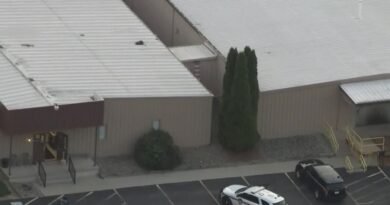Supreme Court to Consider Catholic Charity’s Appeal for Religious Tax Exemption
A split Wisconsin Supreme Court determined earlier this year that the charity’s operations lacked sufficient religious character to merit tax-exempt status.
On December 13, the U.S. Supreme Court chose to review whether the work of a Wisconsin Catholic charity is sufficiently linked to religious activities to qualify for unemployment tax exemption.
According to Wisconsin law, religious organizations that are “operated, supervised, controlled, or principally supported by a church or convention or association of churches” are exempt from state unemployment taxes.
The Wisconsin Supreme Court ruled 4–3 in March, stating that Catholic Charities is not “operated primarily for religious purposes,” failing to satisfy the criteria necessary for tax exemption.
This court found that the activities carried out by Catholic Charities do not represent “typical” religious activities, as the organization does not actively “attempt to imbue program participants with the Catholic faith,” and its support for individuals with mental and developmental disabilities could easily be provided by secular organizations.
Wisconsin Supreme Court Justice Ann Walsh Bradley noted, “if we considered solely the church’s intent in operating the organization, then any religiously affiliated entity would perpetually qualify for exemption.”
The organizations appealed to the Supreme Court, arguing that Wisconsin may be infringing upon First Amendment protections by denying a religious entity a tax exemption based on its failure to conform to the state’s religious behavior criteria, as stated in their petition.
The charities contend that the state court wrongly concluded that their services lack a religious purpose.
As stated in the petition, “In other words, it is irrelevant whether Catholic Charities offers a cup of water in Jesus’ name, as countless secular charities do the same.”
The ruling by the state court results in an “absurd consequence [that] exacerbates a divide between state courts that mandate religious organizations to adhere to stereotypes to qualify for the ‘religious purposes’ exemption and those that do not.”
The commission suggested that the highest court should dismiss the case, arguing that “there is no disagreement among state supreme courts regarding the First Amendment claims raised by the petitioners.” Additionally, a similar consensus exists among federal appellate courts, they noted.
According to the commission’s brief, “Courts often reject religious tax exemption claims from entities citing religious motivations without becoming overly entangled in religious matters.”
Furthermore, the unemployment tax does not infringe upon the petitioners’ right to freely exercise their religion, as it poses “no constitutionally significant burden on their religious practice.” They described the tax as a “general law that is neutral and nondiscriminatory in relation to religious beliefs.”
An oral argument date has not yet been determined for the case.
If the U.S. Supreme Court conducts oral arguments early in the upcoming year, a verdict could be anticipated by June 2025.





